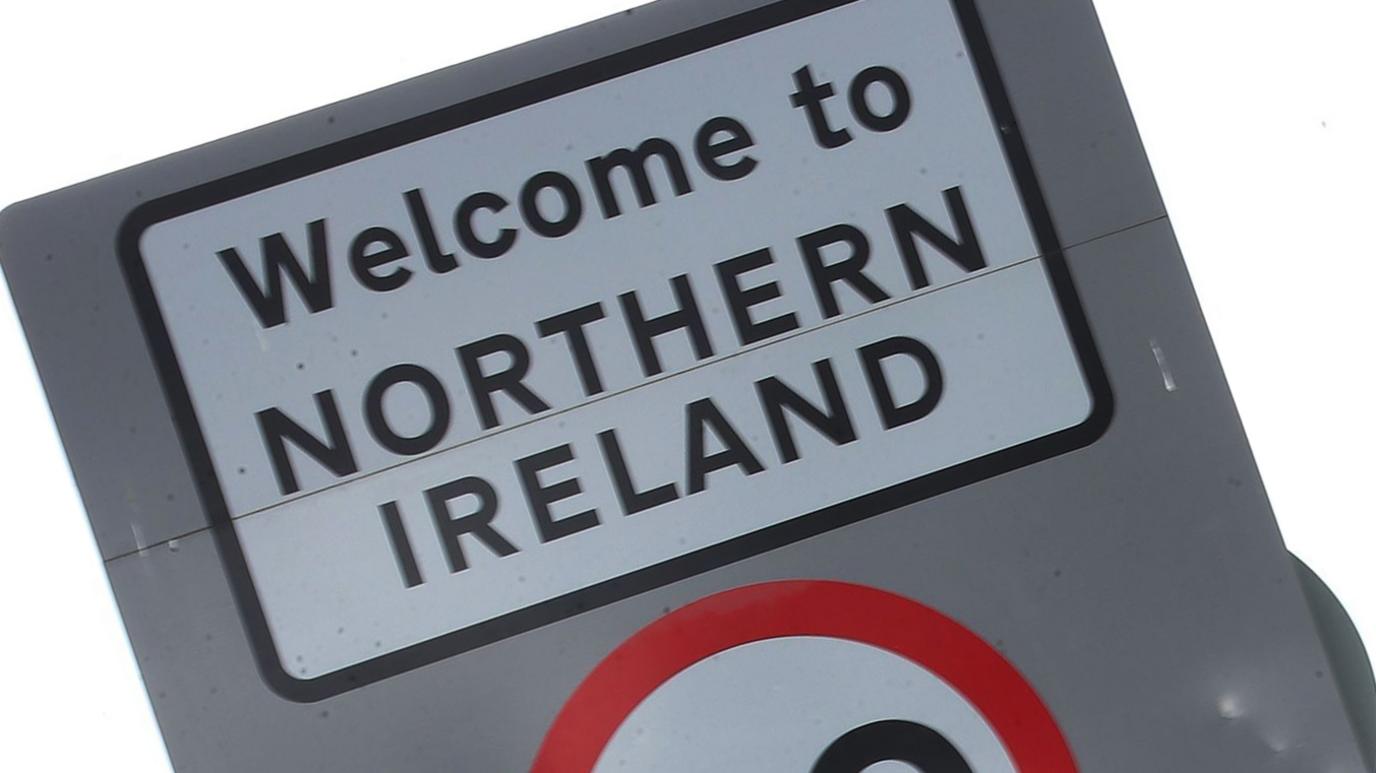Northern Ireland Protocol: Why does the Government want to change NI Brexit deal?
- Published
- comments
BBC's Ireland correspondent Emma Vardy explains why the government wants to change NI Brexit deal
The UK government has announced plans to deal with what it says are problems with the Brexit deal it signed with the European Union (EU) affecting Northern Ireland.
It's known as the Northern Ireland protocol.
The rules of the agreement mean that checks need to happen on goods travelling between Northern Ireland and the rest of the UK (England, Scotland and Wales) which the government says has caused problems it didn't predict when it signed it.
Some politicians in Northern Ireland also say the rules are damaging the country's relationship with the rest of the UK and have refused to take part in the Northern Ireland Assembly unless it is changed.
However other politicians in the country say they are happy with the deal as it is, and the European Union says the UK should talk to them about any changes rather than just doing it themselves or risk breaking an international agreement.
The new Northern Ireland Protocol Bill will be debated and voted on by Parliament and it's a complicated issue that has been causing problems for some time.
What is the Northern Ireland protocol?
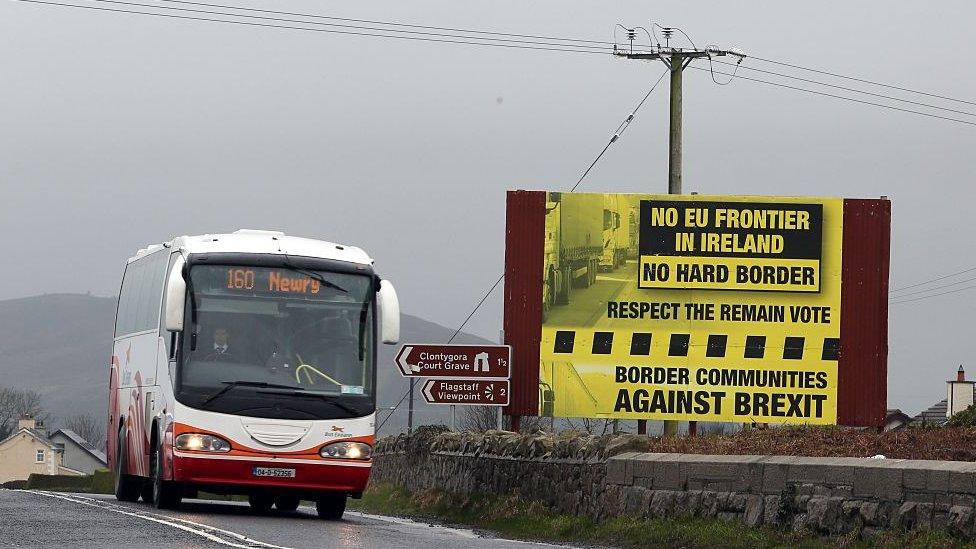
Before it was agreed many also protested against a hard border
Before Brexit, the whole of the UK was in the European Union (EU) so it was easy to transport goods across the border between England, Wales, Scotland, Northern Ireland and the Republic of Ireland - as all parties had the same EU trade rules, which meant no checks or paperwork were necessary.
But after Brexit, a new system was needed because the EU has strict food rules and requires border checks when certain goods - such as raw meat, milk and eggs - arrive from non-EU countries.
The border between Northern Ireland and the Republic of Ireland is a sensitive issue because of the history of Northern Ireland. The Good Friday Agreement, which brought peace to that part of the UK, included the removal of visible signs of the border.
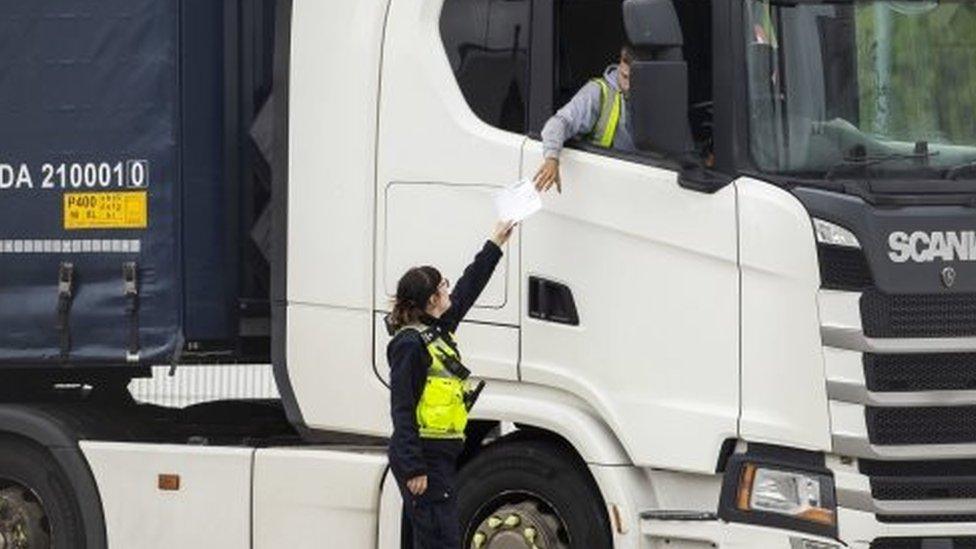
The Northern Ireland protocol was the result of negotiations between the UK and the EU over Brexit, and aimed to avoid the return of a 'hard' land border by allowing Northern Ireland to have shared UK/EU rules and by checking goods coming into Northern Ireland from the rest of the UK.
This is something that parts of the Unionist community - who want Northern Ireland to remain a full and close part of the UK - are very unhappy about.
They say that it weakens the relationship between the Northern Ireland and the rest of the UK.
What have the problems been?
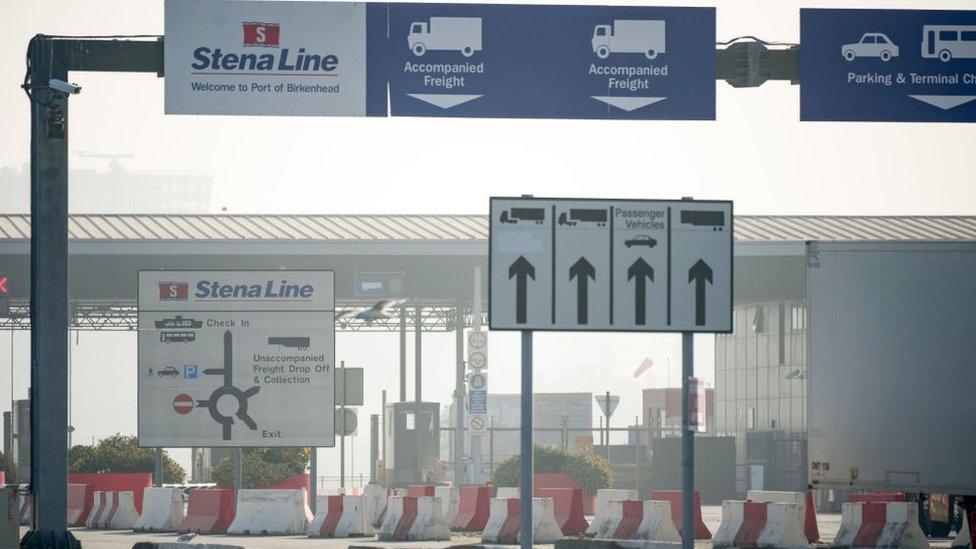
Since the protocol took affect there have been checks on goods coming to and from Northern Ireland by boat
The UK and the EU have always agreed that protecting the peace of the Good Friday Agreement was an absolute priority, but now the UK government says that the current deal is actually a threat to that agreement.
Northern Ireland's second largest party, the Democratic Unionist Party (DUP), is refusing to take part in Northern Ireland's power-sharing government unless its concerns are dealt with.
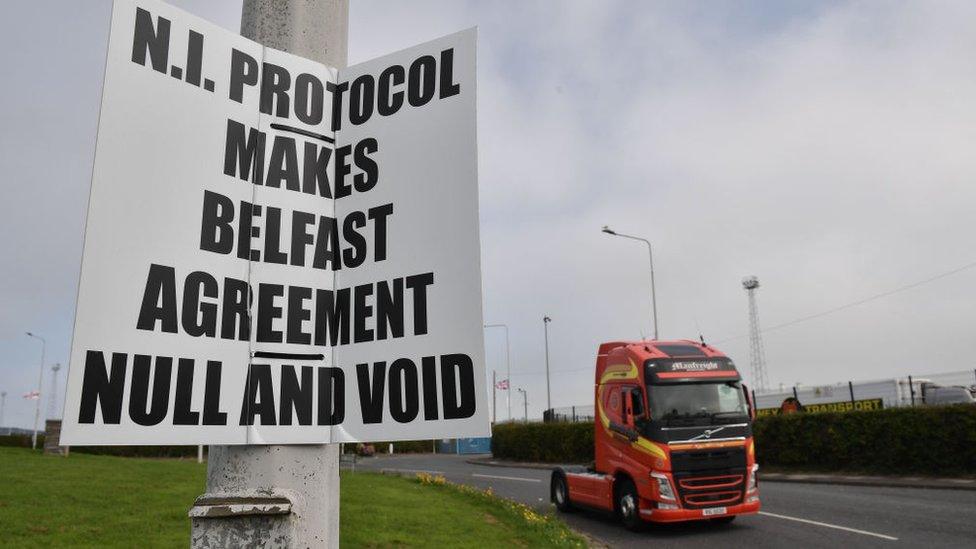
There have been many protests in Northern Ireland against the protocol
Foreign Secretary Liz Truss also says the current deal has also led to too many problems and unnecessary paperwork for businesses moving goods between Great Britain and Northern Ireland.
Ms Truss said the UK would like to go back into discussions to reach an agreement with the EU but that the situation is so urgent that the government has to be able act without reaching agreement.
It's always been our preference to resolve this through talks, but the EU has so far not been willing to change the protocol, which is necessary to deliver the solutions needed for Northern Ireland. Our focus has been, and will continue to be, preserving peace and stability in Northern Ireland.
What do the UK government want to do?
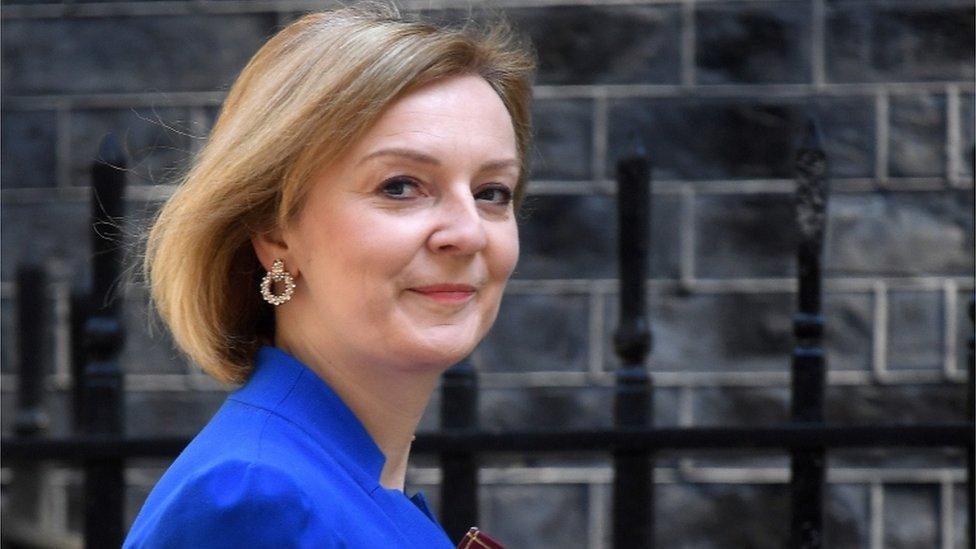
Liz Truss is the UK Foreign Secretary
The new plans would mean that British goods that are intended to only go sale in Northern Ireland would only have to to meet British standards, and not those of the EU.
It wants to cut the number of checks for 'trusted' businesses and have one system for goods going into Northern Ireland and another for goods going to the EU.
The government is also promising to remove what they call "unnecessary" paperwork so that businesses in Northern Ireland will be able to operate under the same rules as those elsewhere in the UK.
The new Northern Ireland Protocol Bill also wants make sure that any trade disputes are resolved by an independent organisation and not by the European Court of Justice.
UK Foreign Secretary Liz Truss said it was "a reasonable, practical solution to the problems facing Northern Ireland" and that the UK could "only make progress through negotiations if the EU are willing to change the protocol itself", adding: "At the moment they aren't."
"We are very clear that we're acting in line with the law," she said.
What have other people said?
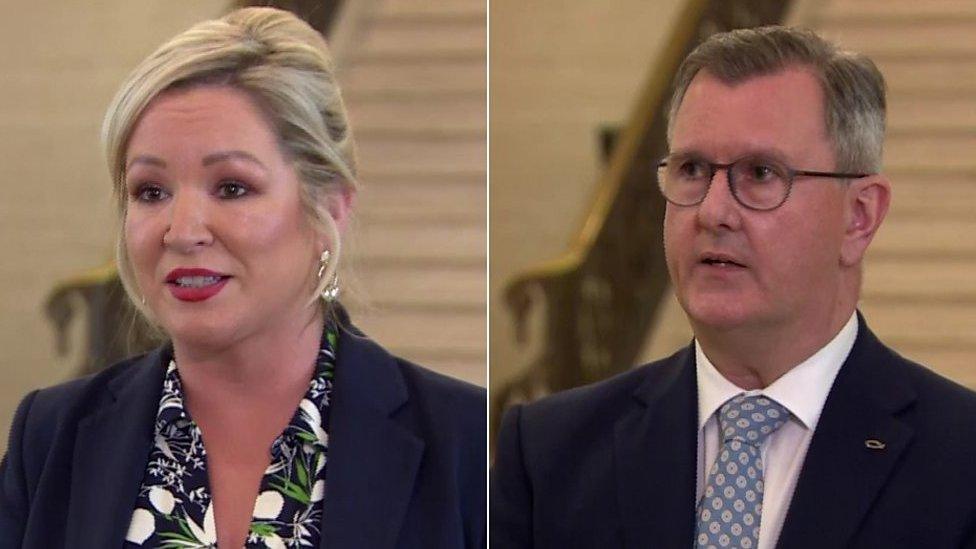
Northern Ireland's two biggest political parties Sinn Fein and the DUP remain at odds over the UK government's plan to change the Northern Ireland Protocol
Three other parties in Northern Ireland: Sinn Féin - the largest party at the last elections - the Alliance Party and the SDLP - say the protocol is necessary for things to run smoothly in Northern Ireland after Brexit.
Fifty-two of the 90 Members of the Legislative Assembly (MLAs) have signed a letter to the prime minister saying the move "flies in the face" of the wishes of Northern Ireland's people and businesses.
Sinn Féin's Stormont leader Michelle O'Neill accused the prime minister of creating more instability and uncertainty in Northern Ireland.
But the DUP leader Sir Jeffrey Donaldson said he believe the government's proposal would provide a solution.
The EU has warned before that renegotiating the text of the Northern Ireland Protocol is out of the question, and that any action by the UK without agreement in advance could have consequences.
European Commission Vice President Maros Sefcovic said renegotiating the protocol is unrealistic and the UK government taking this kind of action is damaging when it comes to trust between the UK and EU.
He said the protocol was the "one and only solution" to protect the peace process in Northern Ireland, while addressing the challenges created by Brexit.
- Published15 September 2020
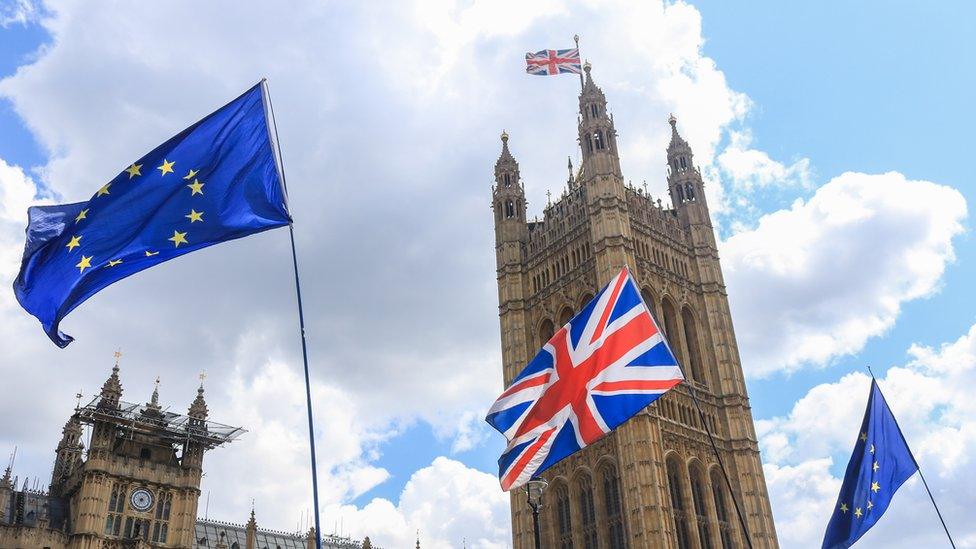
- Published18 May 2022

- Published3 April 2019
